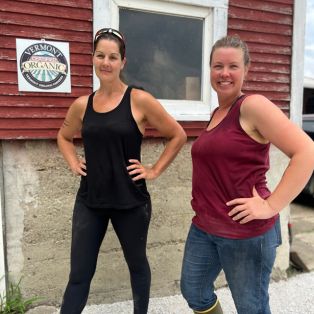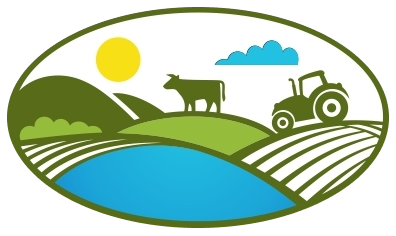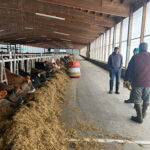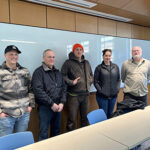We are farmers. We know that some of the best things in life start with a single seed, and with care and cultivation, can flourish into something much larger and grander.
And so it can be said of us. We started as a little seed of an idea between a handful of farmers in 2012. With the help of UVM Extension staff in Middlebury, Vermont and a Conservation Innovation Grant from Vermont Natural Resources Conservation Service (NRCS), we became the Champlain Valley Farmer Coalition.
Our purpose is to assist all farmers in implementing innovative agricultural practices that enhance water quality, soil health, climate smart farming, and their economic resiliency in the Champlain Valley.
We accomplish this through a positive, unified voice that provides targeted education and outreach to farmers and the public; advocates on behalf of farmers’ environmental interests; and collaborates with community partners to achieve common goals.
Since our inception, we have worked tirelessly to grow our membership, participate in difficult conversations around agriculture, water quality, soil health, and climate, and educate each other and our communities.
The partnership between the Coalition and UVM Extension’s Champlain Valley Crop, Soil & Pasture Team has proven to be a powerful alliance that has been a catalyst for action and change in Addison, Chittenden, Rutland, and Washington County farming communities. Many farms have begun adopting new and innovative practices that benefit the environment while proving they can also benefit the farm business. In addition, the Coalition has become an organization that is seen as a voice for farmers in the watershed and is often relied on to give input to governmental organizations and watershed groups.
But that’s just the surface of our story. Our love for the lake, the land, and the communities we live in is embodied by each of our members. We invite you to learn more about what they are doing on their farms to protect water quality, support soil health, and engage in climate smart farming today and for future generations.
Steve Schubart, Grass Cattle Co.
“We think of our farm as an ecosystem, and we’re playing a role as ecosystem managers. For an ecosystem to be functioning, you have to work with nature, not against it.”
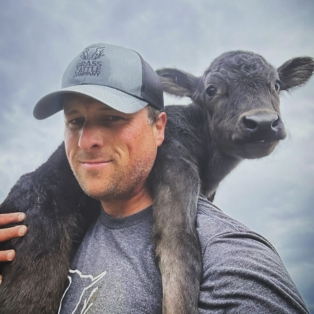
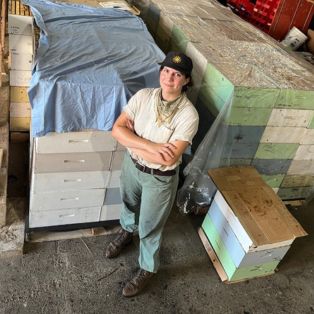
Bianca Braman, Vermont Bees
“Working with such a delicate creature and seeing the Earth from this perspective, I can see there’s nothing more important than preserving it.”
Nick DeGraaf, DeGraff Dairy
“If you don’t care for your land, it’s not going to take care of you.”
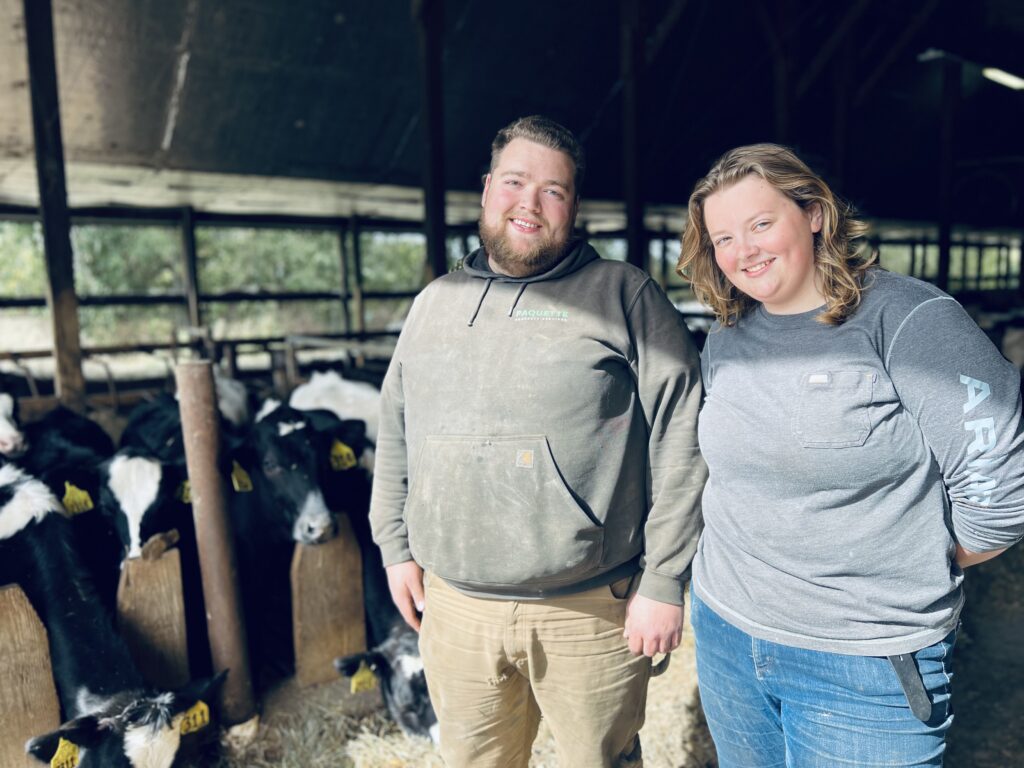
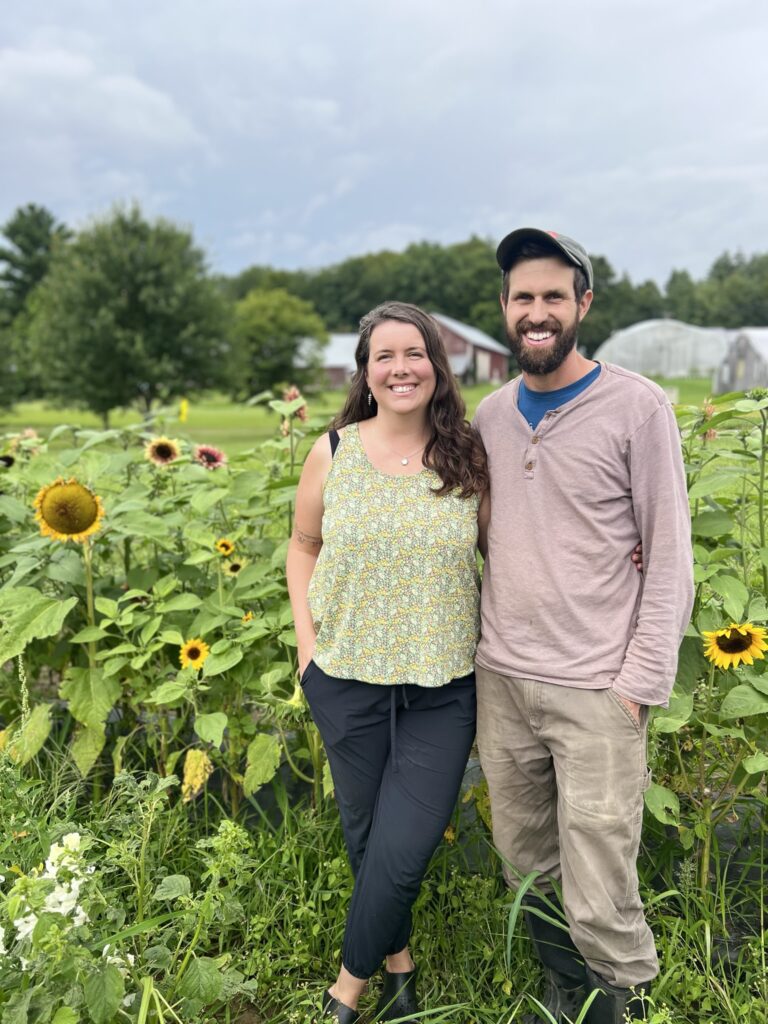
Dan & Elyse Wulfkuhle, Wood’s Market Garden
“We’re producing something humans needs in a less harmful way.
Jon Lucas, Lucas Dairy
“We have a responsibility to the environment and the waterways. Nobody wants to pollute,” says Jon. “My kids and I enjoy Lake Champlain–we do a lot of swimming, fishing, and recreation. We want to do the kind of work that we can be proud of.”
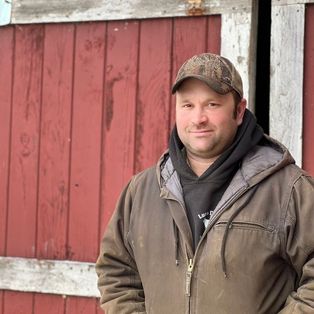
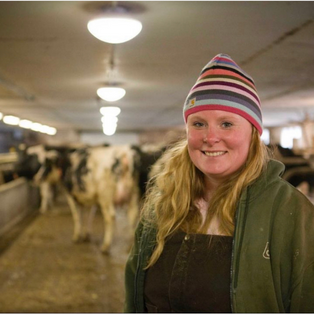
Erin Farr, Farr Farms
“I think it’s important to demonstrate to the next generation that we’re trying something new, trying to stay-up-to-date with current practices, and encouraging progressive thinking,” says Erin Farr, who farms alongside her husband Ashley.
Pauline Stevens, Golden Russet Farm
“I feel super lucky that I’m able to take over this business basically because my parents were good stewards of the land. I can continue because the land still has something to offer,” says Pauline. “I want to make sure that when I’m done farming, there’s still something here that can be enjoyed and used.”
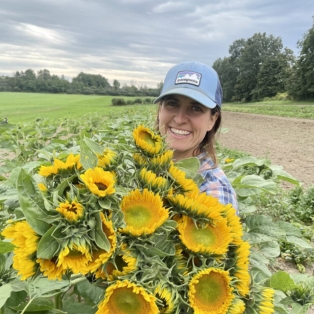
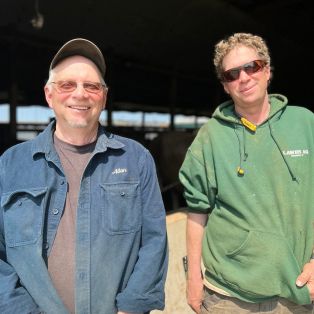
Allan Brisson, Allandra Farm
“You figure out a better way to do something that’s not only good for the environment, it’s also good for you. It can’t get any better than that, can it?”
Ramsay Mellish, Cutting Hill Beef Co.
“As farmers, we have a huge impact on the environment. Farmers are essentially responsible for managing hundreds of thousands of acres in Vermont, and we need to be mindful of that.”
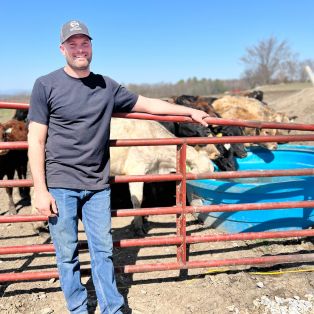
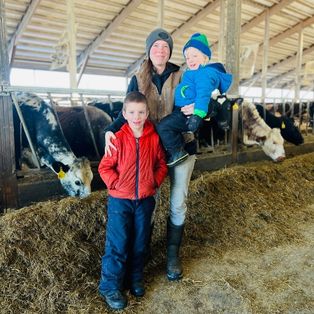
LeAnna Compagna, Scholten Family Farm
“At the end of the day, a good farmer has good management practices. It’s not that they’re big, small, organic, or conventional.”
Cameron Clark, Riverhill Farms
“It’s just beautiful. I want [the land] to stay that way. I want it to be productive and provide for my animals because I love my cows.”
